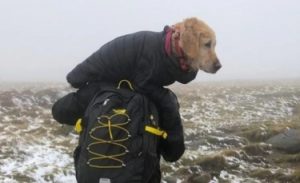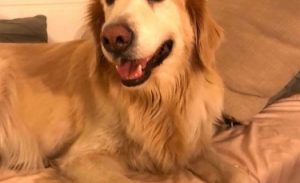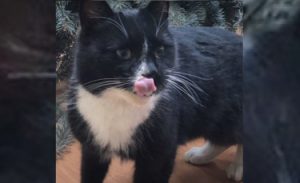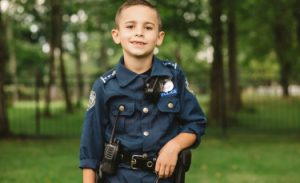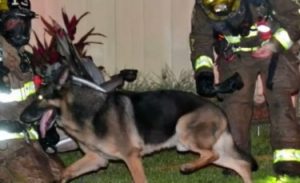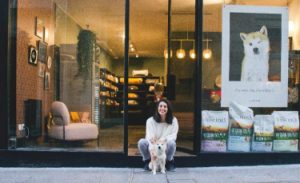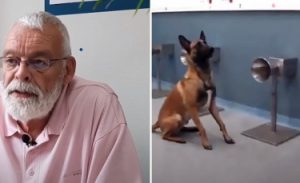Other names: Russko Evropeïskaïa Laïka, Russo-European Laika
The Russo-European Laika is a medium-sized dog of sturdy build, with well-developed musculature and powerful bones. and the body of which can be inscribed in a square, the length being equal to or simply slightly greater than the height at the withers. Males are significantly more massive than females. The gaits of the Russo-European Laika are characterized by supple and free movements.
<!–
–>

| Half-long | |
| Russia | |
| Average | |
| Triangular |
| Sex | Weight | Cut |
|---|---|---|
| Female | From 20 kg to 30 kg | From 48 cm to 54 cm |
| Male | From 20 kg to 30 kg | From 52 cm to 58 cm |
History of the breed
the Russo-European Laika is a dog native to northern Russia . His ancestors are mainly the Laikas Cheremis and Zyrianskiy. Several varieties have been developed by breeders scattered in various regions, including those of Komi, Karelia, Votiatsk and Arkhangelsk. After World War II, these varieties were brought together under one and the same breed, that corresponding to the Russo-European Laika that we currently encounter. A first official standard was approved in 1952.
The Russo-European Laika breed was definitively recognized by the FCI (Fédération Cynologique Internationale) on June 3, 1980. Its official FCI standard in force was published on October 13, 2010.
Physical features
His hair: straight and hard in texture. The outer coat is associated with an abundant, thick and soft undercoat. Shorter and dense at the level of the head and ears, longer on the shoulders and around the neck, constituting a collar. Also longer at the withers.
Its color: unicolour white or black, two-tone black with white markings or white with black markings.
Its head: triangular in shape and, seen from above, wedge-shaped. The skull is broad, the occipital protuberance well pronounced, the stop also pronounced but not abrupt, the nose of medium size and black in color, the muzzle pointed and a little shorter than the skull, the lips joined together, the jaws strong and articulated in scissors, the cheeks well developed.
His ears: V-shaped, erect, medium to small in size, lively, set high and ending in a point.
His eyes: medium in size, oval, brown or dark brown in color and displaying a look full of liveliness and intelligence.
His body: robust, dry and harmonious. The withers are well pronounced, more in males, the back is straight and muscular, the loins short and broad, the croup broad and of moderate length, the ample chest, of oval shape and well let down, the line of the bottom raised.
Its tail: carried above the back, the buttocks or the back of the thighs, sickle or coiled.
Behavior and character
| Affectionate | |
|---|---|
| Calm | |
| Protective | |
| Independent | |
| Hunter | |
| Barks / howls |
Behavior with others
| Cohabitation with children | |
|---|---|
| Sociable with other animals | |
| Love strangers |
the Russo-European Laika is a dog of balanced temperament , full of assurance and liveliness . Versatile hunting dog , it has a powerful flair that makes it easier to detect and track game. The Russo-European Laika is naturally independent and dominant . He is attached to his master and is suspicious of strangers.
The Russo-European Laika
is it right for you? Take the test!
Education
| Clever | |
|---|---|
| Obedient |
the Russo-European Laika needs a firm education and quality socialization . You should not use any form of brutality towards it, but rather it is recommended that the emphasis be on positive reinforcement , focusing on rewards and encouragement. The reminder is to be instilled in him from an early age.
Living conditions
| Suitable for apartment living | |
|---|---|
| Good for new masters | |
| Love it hot | |
| Love the cold |
Due to his independent character and dominant temperament, the Russo-European Laika not suitable for all masters. You need a minimum of dog training experience to know how to manage it and take it in hand. He prefers living spaces offering him large spaces with urban and restricted settings.
Health
| Solid | |
|---|---|
| Ease of gaining weight |
the Laïka Russo-European is a rustic and robust dog , which resists difficult climatic conditions, but which remains more sensitive to strong heat. There is no predisposition to a particular disease in this breed.
Hypoallergenic breed
No
Litter size
Between 3 and 6 puppies
| Major concerns |
|
||
| Minor concerns |
|
| Suggested tests |
|
To protect yourself from these risks and insure your companion in the event of health problems, Woopets advises you to take out Laika Russo-European dog insurance .

function showAssuranceForm () {var siteReferer = var id_race_association = ‘195’; //console.log(id_race_association);success: function (html) {}});}document.addEventListener (‘DOMContentLoaded’, () => {$ (‘# assuranceModalBanner’). on (‘show.bs.modal’, function (event) {showAssuranceForm ();});});
Life expectancy
Minimum: 10 years
Maximum: 12 years
The life expectancy of a Russo-European Laika is, on average, between 10 years and 12 years.
Calculate the human age of your Russo-European Laika!
To choose… 1 year 2 years 3 years Four years 5 years 6 years 7 years 8 years 9 years 10 years 11 years old 12 years 13 years 14 years old 15 years old 16 years old 17 years 18 years old 19 years old 20 years 21 years old
Maintenance and hygiene
| Ease of maintenance | |
|---|---|
| Cost of maintenance | |
| Hair loss |
| Drool level | |
|---|---|
| Ease of grooming |
the Russo-European Laika is subject to 2 moults per year during which it can lose a lot of hair. However, it is not difficult to maintain and requires only basic care.
It is recommended to brush the dog once or twice a week . During the moult, brushing becomes daily. The Russo-European Laika does not need a bath, unless it is very dirty.
Its eyes, ears and pads should be examined carefully for the presence of debris. His teeth need to be brushed frequently to remove tartar build-up and the proliferation of bacteria. Finally, if they do not wear out naturally, its claws need to be cut. If you are new to this, it is recommended that you seek advice from a veterinarian or groomer.
Price and budget
Purchase price
Mini
Max € 500
1000 €
The purchase price of a Russo-European Laika is between € 500 and € 1000.
Annual maintenance cost
Mini
€ 450 Maxi
650 €
The annual maintenance cost of a Russo-European Laika is between € 450 and € 650.
No name is currently proposed. Use our tool to find the name of your Russo-European Laika!
Want the best for your dog?
Create tailor-made food for your Russo-European Laika
I discover !
PROMO -30% | Delivered to you!

Physical activity
| Athletic | |
|---|---|
| Energy level | |
| Potential to play |
the Russo-European Laika is a hardworking dog by nature. As such, he must be able to exercise and be stimulated on a daily basis through long walks and games.
Competitions
| Classifications & Standards |
|
Others
| Master character <span class="btnTooltip qTip2" title="- Calm: the master must be gentle and know how to show patience. – Active: the owner must be energetic and dynamic to live in harmony with his dog. – Hyperactive: the owner must be stimulating and very restless to suit the temperament of his dog.”> |
Active |
|---|
We talk on the forum
In my heart you will stay forever …. my Laika
Message from Joo
Laika …….. LEFT WITHOUT CARE FOR 5 YEARS!
Message from Joo
Laika of Lakutia
Guest message
Rambo, European /?
Message from koochi
Neo, European
Message from koochi
Do you have a question about the Russo-European Laika?
Do not hesitate to ask Woopets visitors for advice on the forum!
FCI Information
FCI No.
304
FCI Group
Group 5: Spitz-type and primitive-type dogs
Recognized by FCI
Since 1980
</div


